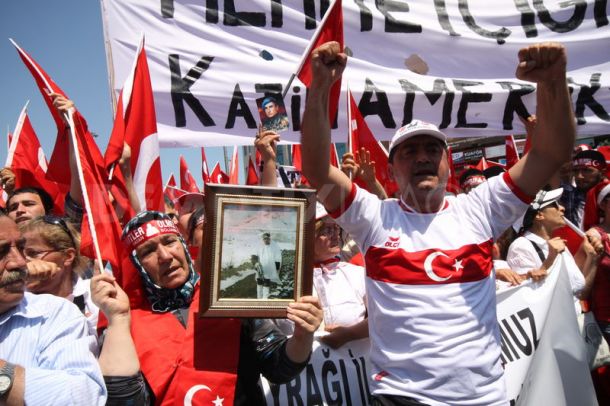The Kurdish Worker’s Party
The Kurdish Worker’s Party (PKK) was established in 1974 under the leadership of Abdullah Ocalan. Its primary goals were Kurdish independence from Turkey, Syria, Iran and Iraq, and the official recognition of Kurdistan as a nation-state. While the 1970s remained a peaceful era for the Kurdish Worker’s Party, due to its initial structuring and support building, the group turned violent in 1984. That fall, the PKK bombed gendarmerie station in Eruh killing one Turkish soldier (NY Times). This attack marked the beginning of a violent separatist movement lead by the PKK in Turkey.
PKK violence continued through the 1990s with a brief ceasefire in the first half of the 2000s. A huge consequence of this violence has been the demonization of the Kurds in Turkey. Despite the fact that not all Kurds support separation, let alone the radical PKK, many Turks feel threatened by the presence of a radical rebel group within their borders(Yanuz). As a result increased discrimination, in the form of political bans, have targeted Kurds. And because the PKK has been labeled as a terrorist group by the US, Turkey, and the UN (NY Times), such sentiments have only risen.
Today, fighting continues with bombings, air strikes, and open-fire as daily concerns of Turkish people. SInce 1984, it is reported that over 37,000 people have been killed as a result of the Turkish-Kudish Conflict. And accusations of genocide have been directed at the Turkish government after the discovery of Kurdish casualties, killed by chemical weapons (Alliance for Kurdish Rights). Despite the fact that violence has persisted in Turkey for over thirty years with only brief ceasefires, the possibility of an end does seem to be in sight. The Kurdish government is in the process of drafting a new constitution, which it claims will extend Kurdish rights. The implementation of the constitution has also been overseen by the PKK, who has demanded “recognition of the Kurdish identity; education in the Kurdish language; and devolution of some sort” (Baydar). If the government and PKK can come to an agreement, there is hope for peace in Turkey’s near future.


